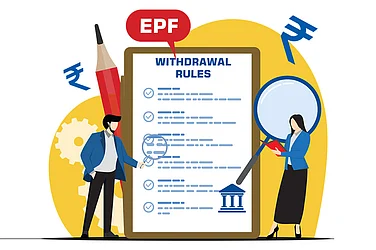Rajesh Sinha email
Q. I am thinking of getting a term insurance of Rs 2 crore, but my insurance agent is asking me to get a term plan with a return of premium option. Which is a better option in terms of pure insurance?
A. A pure term plan is more cost-effective than a return of premium (ROP) plan. For example, for a 35-year-old with a cover till 85 and premium payment for 25 years, a pure term plan may cost about Rs 50,000 per year (Rs 12.5 lakh total), while an ROP plan may cost Rs 1 lakh per year (Rs 25 lakh total). The coverage is the same, but you end up paying double the premium in the ROP option.
An ROP plan returns premiums at maturity, but due to inflation, the value of Rs 25 lakh after 25 years could reduce to only around Rs 3-4 lakh in today’s terms. The so-called “return” often turns out to be a loss in real value.
On the other hand, if you take a pure term plan and invest the premium difference of Rs 50,000 annually in mutual funds at 12 per cent returns, you could build nearly Rs 79 lakh in 25 years, which could grow further to over Rs 13 crore by age 80 if left invested. Separating insurance and investment might work far better in the long run.
Nisha Singh, email
I have received Rs 3 lakh in cash and jewellery worth Rs 2 lakh in gifts from the guests at my wedding, in addition to other gifts from my parents and in-laws. Should I declare all the gifts received in my tax return? If I am to invest the cash amount of Rs 3 lakh in mutual funds or a fixed deposit, will I have to declare that as well?
Gifts received at wedding are totally exempt from tax under Section 56(2)(x) of the Income-tax Act, 1961, irrespective of the amount. So, the Rs 3 lakh cash and Rs 2 lakh jewellery from friends, parents and in-laws, are fully exempt. Since parents and in-laws fall under the definition of “relatives,” their gifts are exempt at any time.
While you don’t need to pay tax, it is better to report these gifts in the “Exempt Income” section of your tax return as “Gift received on the occasion of wedding.” This creates a proper record and avoids any questions later about the source of your investments.
If you invest the Rs 3 lakh in a fixed deposit (FD) or mutual funds, the investment amount itself will not be taxed. However, the returns will be taxable. FD interest is fully taxable under “Income from Other Sources” at your slab rate (5 per cent, 20 per cent or 30 per cent). In mutual funds, capital gains are taxed at different rates depending on the type of fund (equity or debt) and the holding period. On the other hand, dividends are also taxable, depending on the year they are received.
Hina Shah, CFP® LUHEM² Wealth
VS Subramanian email
I am 55 and will retire in five years. I have an Employees’ Provident Fund and Public Provident Fund corpus totalling about Rs 1.25 crore and fixed deposits of Rs 30 lakh. My wife has savings of about Rs 60 lakh and will be retiring in eight years. Should we start investing in mutual funds? If yes, how long should we continue it for? We can invest about Rs 50,000 per month for at least next five years. We currently don’t have any outstanding loans.
Since you are debt-free and have already built a reasonable retirement corpus, you can consider investing Rs 50,000 per month in mutual funds over the next five years. Your wife’s longer working horizon of eight years makes this even more suitable, as it allows more time for equity investments to grow.
After her retirement, you can shift the accumulated corpus into equity hybrid funds and start a systematic withdrawal plan (SWP). This will provide regular income in a tax-efficient way while the rest of the money continues to grow. Over the long term, this will allow your wealth to increase every 10 years, even as you withdraw for monthly expenses.
This can be a good opportunity to build meaningful equity exposure before retirement, which can help your savings grow during your retirement years. A certified financial planner can help you choose the right fund categories based on your risk profile and income needs.
Suhel Chander, CFP® Handholding Financials













